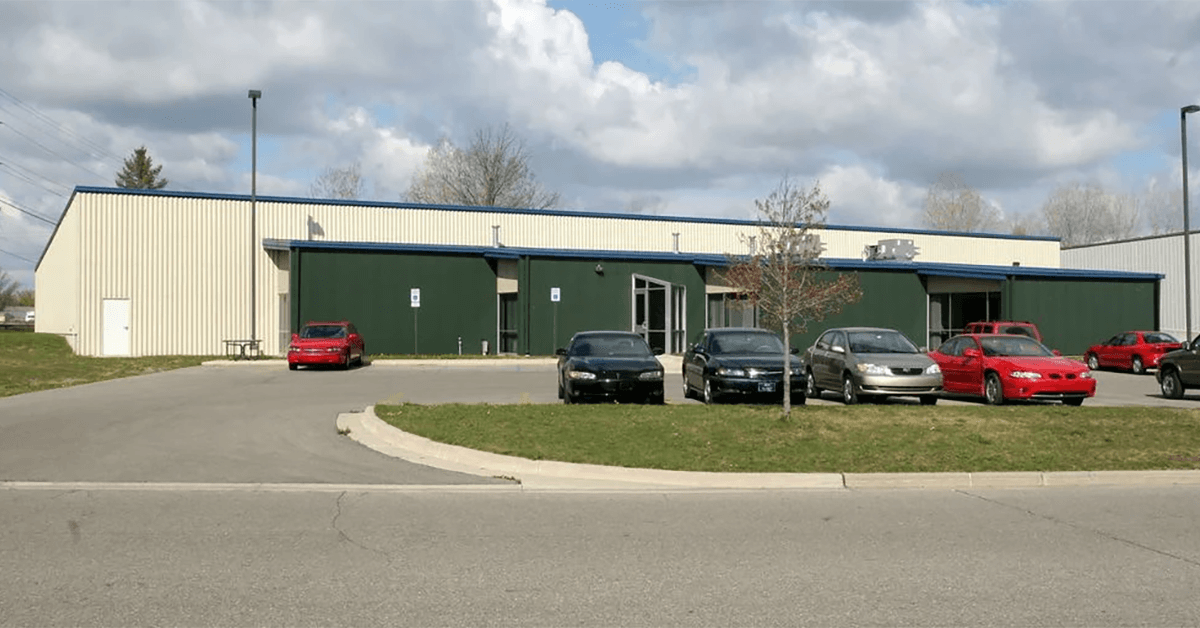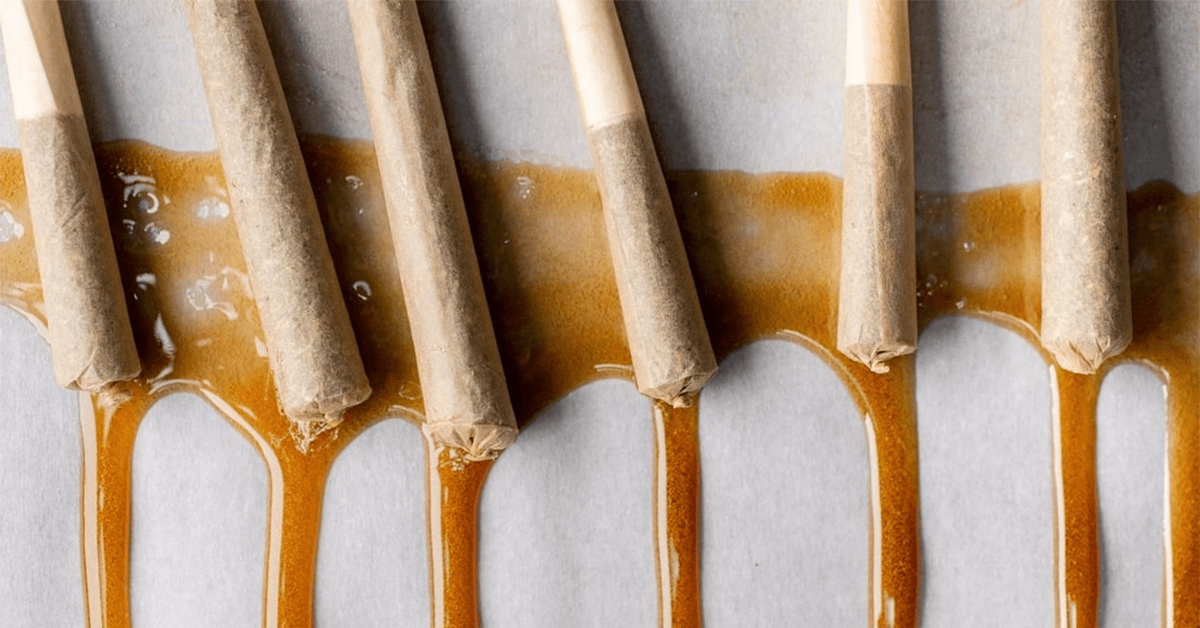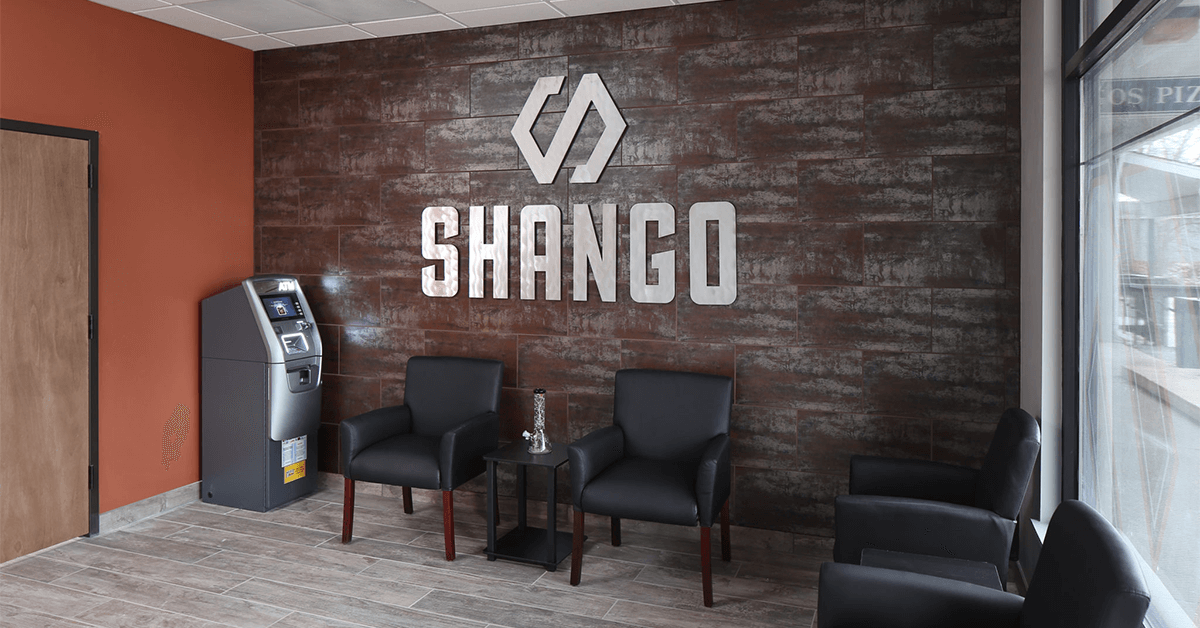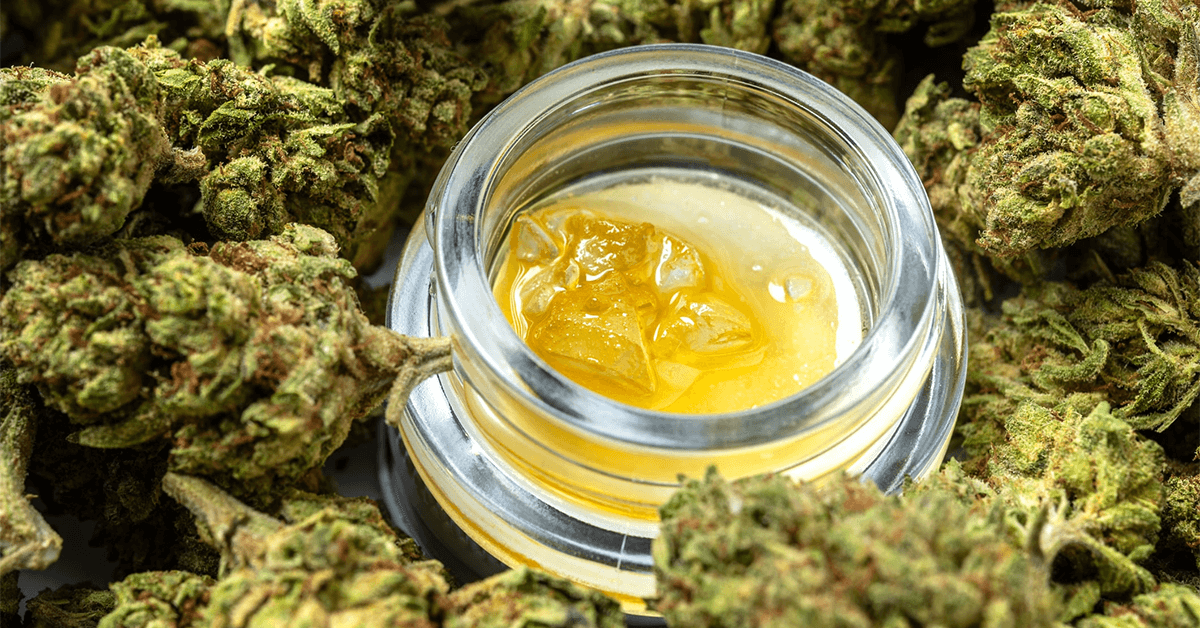Ex-Skymint CEO's Ex-Wife Acquires Cannabis Operation Amid Ongoing Legal Battles

Susan Radway, the ex-wife of Jeff Radway, a prominent figure in Michigan's early legal cannabis industry, has made a significant entry into the state's cannabis market. According to court documents, Susan Radway has acquired cannabis plants and processing equipment from a former Skymint facility located at 1669 E. Jolly Road in Lansing.
This facility, initially established by Jeff Radway in 2018, faced substantial challenges after Skymint entered receivership last year amid accusations of financial mismanagement. Susan Radway's company, Fantasy Farms LLC, purchased the assets from the receivership for $350,000. The North Carolina-based company received prequalification approval from the state to operate the grow operation in January.
Jeff Donahue, Skymint's executive vice president and general counsel, confirmed that Fantasy Farms is now managing the grow operation and has retained approximately 75% of the former Skymint staff.
The acquisition marks a new chapter in the complex saga of Skymint, which led to Jeff Radway's departure and subsequent divorce from Susan Radway. Several attempts to contact Jeff and Susan Radway for comments were unsuccessful.
Jeff Radway was at the center of controversy surrounding Skymint, which was placed into receivership by an Ingham County Circuit Court judge in March of last year due to unpaid debts. Skymint, primarily operating under Green Peak Innovations Inc., owed over $127 million to Canadian investment firm Tropics LP, which alleged the company was losing $3 million monthly while generating only $110 million in revenue in 2022, far below the forecasted $263 million.
Additionally, a lawsuit filed by New York-based cannabis investment firm Merida Capital Holdings accused Skymint and its executives of financial misrepresentation and mismanagement. Merida also alleged that Jeff Radway used Skymint's funds for personal expenses and engaged in inappropriate relationships with employees, which included settlements using company funds to silence allegations.
Although an Oakland County judge dismissed a lawsuit by Merida that sought to prevent the sale of former 3Fifteen properties, Merida has appealed the decision.
Despite the turbulent history, Susan Radway and Fantasy Farms are moving forward with their cannabis operations. Jeff Radway, though not involved with Fantasy Farms, co-owns the building at 1669 E. Jolly Road with Susan. The property, initially acquired for $659,000, was sold to 1669 E. Jolly Road LLC for $100 in March. Both Jeff and Susan are owners of the LLC, according to court records, and Fantasy Farms is leasing the building.
Susan Radway's prior business experience includes running Moxifit Body Fuel LLC, a health supplement company dissolved in December. She had no known involvement in the cannabis industry during her marriage to Jeff Radway. Jeff Donahue of Skymint confirmed her lack of prior engagement with Skymint.
The future for Fantasy Farms could be challenging, given the high production costs at former Skymint facilities, which averaged over $1,000 per pound—significantly higher than the $450 per pound that is considered profitable. This cost issue contributed to Skymint's decision to cease all growing operations this year, including closing its 56,000-square-foot facility in Dimondale in March. The facility has since been leased to Lume Cannabis.
Currently, Skymint focuses solely on retail sales, operating 20 stores across Michigan. Despite the receivership, Skymint remains competitive, according to Donahue, who emphasized the company's stability and ongoing efforts to reduce costs.
Tropics LP, through Skymint Acquisition Co., acquired Green Peak Industries' assets, doing business as Skymint, for $109.4 million in a receivership auction. However, the deal is pending closure due to ongoing lawsuits that must be resolved before Tropics can take control.
Infused Pre-Rolls: Boon or Bane for Michigan's Cannabis Consumers?

The escalating demand for high-THC cannabis products in Michigan is driving significant changes in the market. As consumer preferences shift towards more potent options, manufacturers are phasing out plants with THC levels below 20%, focusing primarily on high-THC strains. This trend is particularly evident in the pre-roll sector, where the competition for potency has led to an increase in the use of cannabis concentrates.
Producers are now infusing pre-rolls with live resin, live rosin, kief, and various other concentrates to boost THC content. Premium products from brands like Element and Ice Kream Hash Co. highlight the potential for high-quality, infused pre-rolls. However, the majority of infused pre-rolls are made using lower-quality flower combined with cheap distillates and non-naturally occurring terpenes and flavorings.
The widespread use of these additives raises several concerns. To counteract the harshness of low-quality flower and concentrates, manufacturers frequently add terpenes, which are compounds responsible for the distinct aroma and flavor of cannabis. Advances in technology have made it possible to isolate these terpenes from cannabis and other plants, but the addition of high concentrations of terpenes and flavorings, especially when combusted, poses potential health risks.
Jason Allen, co-founder of Lapeer-based Old School Organics, underscores the uncertainty surrounding the long-term effects of inhaling combusted terpenes. "No one knows enough about the long-term effects of combusting these types of terpenes and flavorings," Allen notes. Old School Organics adheres to more traditional practices, offering 100% flower pre-rolls made from strains selected for their natural terpene profiles.
Despite the potential risks, the industry has largely embraced this trend. Infused pre-rolls offer a way for producers to utilize lower-tier buds by enhancing them with distillates and terpenes, thereby producing high-THC pre-rolls at a low cost. This caters to the prevalent consumer demand for affordable products with maximum THC content.
The focus on THC potency and low cost reflects a broader issue within the cannabis industry. Many consumers equate high THC levels with quality, often overlooking other important factors such as the overall quality of the flower and the presence of potentially harmful additives. Consumer education and awareness are crucial in addressing these issues. Knowing the composition of cannabis products and consulting knowledgeable budtenders can help consumers make safer choices.
In summary, while the trend of infused pre-rolls meets current market demands, it is essential for consumers to remain informed and cautious. Cannabis, while generally safe, should be consumed responsibly. Awareness and accountability from both producers and consumers are key to ensuring the safe and enjoyable use of cannabis products.
Michigan's Cannabis Market Adjusts as Dispensary Closures Increase

Six years after Michigan legalized recreational cannabis, the state's dispensary landscape is undergoing significant changes, with numerous stores closing due to market adjustments. Experts attribute this to the natural evolution and maturation of the industry.
In Lowell, one of the pioneering cities for cannabis dispensaries in Michigan, the initial boom is now witnessing a contraction. City Manager Mike Burns noted that Lowell once boasted nine recreational cannabis dispensaries and three cultivation centers at its peak in 2022. However, the city currently has only five operational dispensaries.
"We anticipated a market correction," Burns said. "We never expected all nine facilities to remain open indefinitely."
Josh Covert, CEO of Meds Cafe—the first cannabis shop in Lowell—highlighted several factors contributing to the city's initial high number of dispensaries. "When Lowell allowed dispensary licenses, there weren't many other cities doing the same. This scarcity drove interest from investors nationwide," Covert explained.
Covert, who also founded Michigan Cannabis Lawyers and served on the board of MI Legalize, emphasized Lowell's early recognition of dispensaries' economic benefits. "Dispensaries created jobs and generated significant tax revenue for the city, varying from $50,000 to $60,000 per establishment annually," he said.
Lowell benefits from a 10% excise tax on cannabis sales, plus an additional 6% adult use sales tax. This revenue has been instrumental in funding infrastructure projects. "We've paved numerous streets in the past four years thanks to cannabis tax revenue," Burns noted.
The decline in dispensaries is partly due to nearby towns adopting cannabis licensing, which reduces Lowell's customer base. Despite this, Burns remains optimistic. "Statewide cannabis sales continue to rise, so our revenue should remain stable even with fewer dispensaries," he said.
Covert pointed out the complexities of operating in the cannabis industry, which include stringent state regulations, unique IRS taxation, and the inherent unpredictability of agricultural production. "A bad harvest can disrupt the supply chain significantly," he said.
Despite these challenges, Covert believes the market will eventually stabilize, with experienced operators prevailing. "The industry is still volatile, but we'll see a balance as more municipalities opt in and less sustainable businesses close," he predicted.
Looking ahead, Covert sees continued growth potential in Michigan's cannabis sector. "We haven't reached peak cannabis sales yet, mainly because large parts of the state still lack access to cannabis products," he stated. "As access expands, we expect the market to plateau at a sustainable level over the next few years."
Michigan Ranks Second in U.S. Cannabis Sales for First Half of 2024

Michigan has emerged as a formidable player in the U.S. cannabis market, securing the second spot in state-by-state cannabis sales for the first half of 2024. The state reported a staggering $1.6 billion in sales, trailing only behind California, which amassed over $2 billion despite facing significant challenges.
California, with its well-established cannabis market, continues to lead the nation in total sales. However, the state is grappling with declining legal market sales attributed to stiff competition from the illicit market and high taxes. Despite these issues, California still averages around $347 million in monthly sales.
Michigan's rapid ascent in the cannabis industry is noteworthy, especially considering that it only began legal adult-use cannabis sales in 2019. The state's average monthly sales reached $270 million in the first half of 2024, reflecting robust consumer demand and effective market growth strategies.
Per Capita Sales Highlight Michigan's Dominance
While California leads in total sales, Michigan outshines the Golden State in per capita sales. For the first half of 2024, California's per capita sales for its 21+ population stood at $74.90. In contrast, Michigan reported an impressive $233.97 per capita for the same demographic. This substantial difference underscores Michigan's efficient market penetration and strong consumer base.
Record-Breaking Sales Months
Both states witnessed their highest sales months in March, April, and May, contributing significantly to their half-year totals. The thriving market activity during these months played a crucial role in solidifying their positions as the top two cannabis markets in the U.S. California and Michigan are the only states to surpass the $1 billion mark in legal cannabis sales so far this year.
Michigan's Market Dynamics
Several factors contribute to Michigan's impressive performance in the cannabis industry. The state's relatively recent entry into the legal market allowed it to adopt best practices from other states, enhancing regulatory frameworks and business operations. Additionally, Michigan's competitive pricing and diverse product offerings have attracted a wide range of consumers.
Michigan's regulatory environment has also been conducive to market growth. State officials have implemented policies that support both businesses and consumers, fostering a stable and flourishing market. This approach has enabled Michigan to swiftly climb the ranks and compete with long-established markets like California.
Looking Ahead
As the cannabis industry continues to evolve, Michigan's strong performance sets a precedent for emerging markets. The state's ability to generate high sales figures and maintain a strong per capita sales rate demonstrates its potential for sustained growth. Observers will be keenly watching Michigan's market strategies and regulatory developments as they unfold in the latter half of 2024 and beyond.
Shango Facility Commits to Resolving Odor Issues in Lapeer

Monday evening, executives from SDRK Group, LLC, operating the Shango cannabis cultivation facility on Saginaw Street at the former Lapeer Grain site, presented their ongoing efforts to address persistent odor issues to the Lapeer City Commission. The problem has plagued the area for about a year, prompting community concern and regulatory scrutiny.
Andy Shango, a representative of the facility, attended the meeting along with Operations Director Rick Thornton and consultant Joe Israel. Shango emphasized the importance of resolving the odor issue not only for their building but also to prevent blame from falling on other nearby facilities.
Thornton detailed their two-part strategy to mitigate the cannabis odor. The primary solution involves implementing negative pressure in the cultivation, drying, and storage areas. "Negative pressure should eliminate the odor," Thornton explained, estimating that this system could be operational within 90 days, pending the delivery of necessary equipment. If this measure proves insufficient, a secondary, more costly option involves negatively charging the air, using advanced air scrubbers and ozone gas. This process could take up to 120 days to complete.
Ozone technology is a clean method for purifying air in cannabis facilities. Industrial ozone generators produce ozone gas by passing oxygen through a high-voltage electrical discharge, which splits oxygen molecules into individual atoms. These atoms then combine with other oxygen molecules to form ozone gas, which reacts with the cannabis odors and reverts to oxygen, leaving no harmful residues.
"One way or another, we will resolve this," Shango assured, advocating for the City to establish a comprehensive odor ordinance applicable to all facilities.
In April, the City of Lapeer issued a citation to SDRK for the persistent odor. The Michigan cannabis regulators have indicated that SDRK's grow license renewal may be contingent on resolving this issue.
On July 10th, SDRK's legal counsel, Michael J. Gildner, sent a letter to Lapeer City Manager Mike Womack outlining their ongoing efforts to mitigate the odor complaints. "My client disputes the City's assertion that it is the sole source of odor complaints and believes it has been unfairly targeted. Nonetheless, SDRK is committed to making operational changes to be a better neighbor," Gildner wrote.
Womack responded with skepticism about the timeline. "I've heard various estimates, from 90 days to 120 days. What matters is eliminating the odor," he said.
According to SDRK documents provided to city officials, the facility began cannabis cultivation in June 2023, gradually increasing to a maximum of 4,000 plants housed in renovated pole barns. The first odor complaint from a city building inspector was recorded in September 2023.
Michigan Leads the Way in Cannabis Concentrate Market

In the evolving cannabis industry, Michigan has established itself as a significant player, particularly in the cannabis concentrate market. This rise is marked by the presence of numerous top-performing brands, setting the state apart in a competitive landscape.
The Appeal of Concentrates
In a saturated cannabis market, consumers increasingly seek out premium products with superior quality and unique attributes. Cannabis concentrates have become a favored choice due to their high potency, refined flavors, and sophisticated packaging. According to BDSA data, the popularity of cannabis concentrates has surged, with sales rising significantly. This makes them an attractive option for companies aiming to enhance profit margins.
Key Brands in Michigan
Michigan has become a hub for several standout cannabis concentrate brands, reflecting strong growth and market performance. Brands such as Goodlyfe Farms, Galactic, and Society C have each surpassed $5 million in sales, demonstrating robust demand and customer loyalty. These brands are not only excelling in the concentrates market but are also making significant strides in other product categories.
Comparative Performance in Other States
While Michigan leads with its top-performing brands, other states also show notable activity in the cannabis concentrate market. Massachusetts, for instance, is home to successful brands like LivWell and Happy Valley, both exhibiting strong sales trends. Additionally, Sauce Essentials, which operates in Massachusetts and other states, has seen sales exceed $1 million, highlighting the cross-state appeal of premium concentrates.
Market Insights and Performance Trends
Analyzing the broader market landscape, Headset data provides insights into the performance of various brands across different states:
- Ozone: This brand has shown remarkable performance in Illinois, consistently ranking high in multiple cannabis categories. Ozone held the second position in concentrates from April to June 2024.
- Rythm: Although Rythm experienced fluctuations, it maintained a fourth-place ranking in Illinois concentrates from March to May 2024 before dropping out of the top 30 by June.
- Good Chemistry Nurseries: Demonstrating consistent growth, this brand reached over $2 million in sales by June 2024. In Massachusetts, it achieved the top spot in concentrates in June.
- Goodlyfe Farms: In Michigan, Goodlyfe Farms climbed to third place in pre-rolls by June 2024, showing notable progress from sixth in March. However, its entry into the concentrates category in May at 32nd and subsequent rise to 22nd by June indicates both potential and challenges in this market.
Emerging Players and Market Potential
Several emerging brands are making significant strides in Michigan, underscoring the state's dynamic market growth. Brands such as Distro 10, Mischief, The Limit, and Traphouse Cannabis Co. have all surpassed $1 million in sales, indicating strong market penetration and potential for future growth.
Top Cannabis Concentrate Brands by Sales and Locations
- Ozone: Illinois, Massachusetts, Maryland, Michigan, Ohio
- Rythm: Illinois, Massachusetts, Maryland, Nevada, New York, Ohio
- Good Chemistry Nurseries: Colorado, Massachusetts
- Goodlyfe Farms: Michigan
- Galactic: Massachusetts, Michigan, Missouri
- LivWell: Maryland, Michigan, New York
- Society C: Michigan
- Distro 10: Michigan
- Happy Valley: Massachusetts
- Sauce Essentials: Arizona, California, Michigan, Nevada, Ohio, Oregon
- Muha Meds: California, Michigan
- Mischief: Michigan
- The Limit: Michigan
- Traphouse Cannabis Co.: Michigan
Conclusion
Michigan's prominence in the cannabis concentrate market is evident from the success of its local brands, which continue to outperform in sales and market presence. The state's robust market environment, coupled with consumer demand for high-quality concentrates, positions Michigan as a critical player in the national cannabis industry.


 Helpful Links
Helpful Links